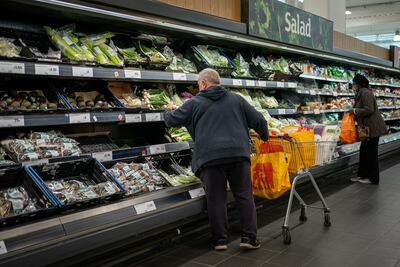British manufacturers have seen a fall in price inflation both for the materials they buy to make their products and what they charge at the factory gates.
UK factories charged 0.8 per cent less for their products in December compared with November, while their input prices fell by 1.1 per cent, according to the Office for National Statistics.
Both input and output prices showed a picture of slowing inflation. Much of the downwards pressure on input prices came from a widespread fall in raw material costs, led by imported food, chemicals, parts and equipment, and oil.
Producer input prices rose by 16.5 per cent in the year to last December, down from 18 per cent in the year to November, and 20.2 per cent in the year to October.
Producer output — or factory gate — prices rose by 14.7 per cent in the year to December, down from 16.2 per cent in the year to November and 17.5 per cent in the year to October.
“The falling costs of parts, equipment and fuel prices are all helping, and the overall trend is encouraging, showing inflation is heading in a downwards direction,” said Susannah Streeter, senior investment and markets analyst at Hargreaves Lansdown.
“But it’s clear that producers are still grappling with the high cost of doing business while attempting to keep a lid on price increases for customers.”

Food prices unpalatably high
The producer prices are in line with the latest consumer price inflation (CPI), which has shown a slight decline since hitting a 41-year high in October.
Nonetheless, output producer price inflation for food products remained an issue. Food products had an annual price increase of 17.1 per cent in December, up from 16.9 per cent in November.
The overall annual rate of input Producer Price Inflation (PPI) has been slowing for the last six months and is now 8.1 per cent lower from a record high of 24.6 per cent in June last year. The annual rate of out PPI has been slowing for the last five months.
All eyes now turn to the Bank of England's meeting to set interest rates next week. It's Monetary Policy Committee is widely expected to raise rates by 0.5 percentage points to 4 per cent.


